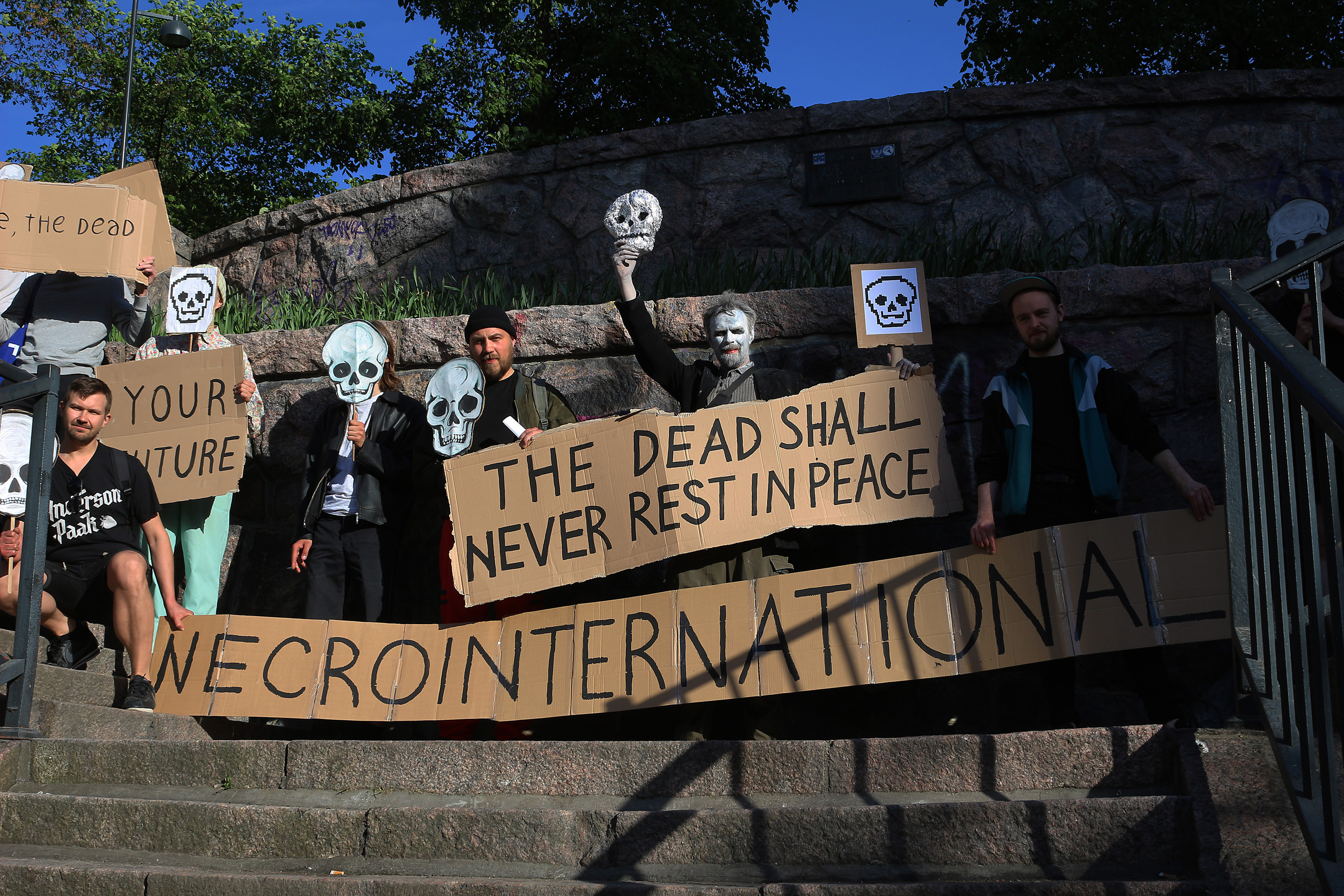the party of the dead – draft charter*

we publish the draft charter of the party of the dead — both in view of its inaccessibility and in view of its possible revision. the text appeared in december 2017, the current edition refers to may 2019 — since then the draft party charter has not been changed
1. the principles of the party’s organization and the foundations of party ideology can be expressed in the following three words: freedom, equality, mortality (liberté, égalité, mortalité).
a) freedom: all are free in their mortality, death frees all. that’s why the party of the dead is the most free party in the world;
b) equality: all are equal in their mortality, and among the dead there is no one who is more dead than the others. that is why the party of the dead is the most horizontal party in the world;
c) mortality: the possibility of death is open for all, and, in general, the living are just a sub-species of the dead. that is why the party of the dead is the most inclusive party in the world.
2. the party of the dead is made up of all the dead. all the living are future party members (when, where, under what circumstances this future will come, and whether it will ever come for you and for all — the dead cannot say).
3. for all the living, participation in the party is free (actually free and potentially necessary), which means:
a) for all the living there are no obligatory formal procedures, rituals, etc. for admission to the party or withdrawal from it, nor are there any valid documents confirming their participation in the party or, conversely, non-participation in it. per contra, all possible documents for membership (party cards, etc.), even fake ones, are valid;
b) anyone can speak on behalf of the party of the dead if that does not contradict its principles (freedom, equality, mortality);
c) in order to act on behalf of the party it is sufficient to refer to the party either directly or indirectly;
d) anyone, in accordance with the principles of the party, and also referring to it, can organize a local branch of it (regional cell, circle of supporters, squad of the dead little ones, etc.).
4. the party of the dead does not recognize any state or state institution, and therefore there can be no support of any existing government on behalf of the dead.
5. no one — no institution, no social group and no single living person — has the preferential and exclusive right to speak on behalf of the dead. there’s no privileged access to the dead. therefore one of the main tasks of the party is to criticize attempts of getting such access and appropriating the voices of the dead (which is very common among state and other political forces, as well as religion, magic, etc.).
6. besides this critical and negative task, the party also has a positive one: we should make the dead speak directly, on their own behalf and with no mediation. the dead should speak out not as the resurrected, or as the living dead — they should speak out as completely and irrevocably dead and not-living-at-all. this task is impossible to complete, and yet there can be no social or political justice without this direct speech of the dead, for the dead are the absolute and the absolutely excluded majority.
7. the party is also charged with the task of reminding the dead that they are dead, because many of them forget it or don’t even know about it (and, speaking in general, it is not only the dead who are dead).
THE DEAD OF THE EARTH, UNITE!
for death is the most common thing we have
====
*this charter is just a draft, for we (currently) see no possibility of its ratification
